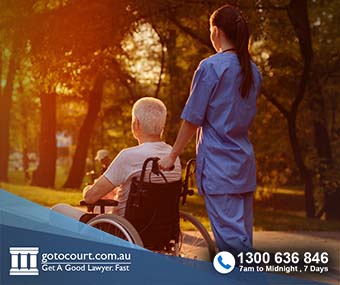Call our lawyers
now
or,
have our lawyers
call you
Workplace Discrimination in Queensland | Employment Lawyers QLD
Updated on Nov 07, 2023 • 4 min read • 692 views • Copy Link
Workplace Discrimination in Queensland | Employment Lawyers QLD
Workplace discrimination refers to treating a person less favourably on the grounds of a certain attribute, such as race, sex, sexuality, and political and religious beliefs. The main legislation which prohibits discrimination in Queensland is the Anti-Discrimination Act 1991, which makes discriminatory conduct unlawful, and therefore actionable at law, in certain contexts such as in the workplace, in the provision of goods and services, and in accommodation.
Attributes protected by discrimination laws
There are sixteen attributes which are listed as prescribed attributes under the Act. These are:
- age
- race, which may include colour, ethnic origin or ancestry, and nationality
- sex
- pregnancy
- impairment or disability – including physical or mental disability by reason of a disease or condition, the loss of any bodily parts or bodily functions.
- relationship status – including being single, divorced, married, living in a registered relationship, being widowed, and being separated.
- sexuality
- breastfeeding
- gender identity
- parental status
- family responsibilities
- lawful sexual activity
- religious beliefs or activity
- political beliefs or activity
- trade union activity
- relationship with or association with a person having any of the above attributes.
What is discrimination?
Workplace discrimination in Queensland can be based on a characteristic that a person with a protected attribute generally has, or a characteristic that is attributed to or imputed to a person with that protected attribute. For example, the necessity to express milk is a characteristic attributed to a woman who breastfeeds. It would therefore be unlawful to discriminate against a woman who needs to interrupt her work routine to express milk.
Discrimination may be direct discrimination, which occurs where a person is treated less favourably than someone who does not have the attribute, in circumstances which are the same or not materially different. For example, refusing to hire a person because of their race.
Discrimination may also be indirect discrimination, which occurs where a party imposes a term or rule which a person who has a protected attribute is unable to comply with. For example, refusing to hire people who are shorter than a specified height.
Discrimination in the workplace
Under the Act, it is unlawful not only to discriminate in the workplace, but in the pre-work phase as well, which includes deciding who should be offered employments and also deciding the arrangements which should be made.
The kinds of actions that may constitute discriminatory conduct in the workplace include demoting a person, dismissing a person and denying a person opportunities in the workplace for training or promotion.
Complaining to the Anti-Discrimination Commission
A person who thinks they have been discriminated against in Queensland can complain to the Queensland Anti-Discrimination Commission within one year of the incident. The Commission has the discretion to reject an application if it is made outside this time, or if the Commission considers that it relates to trivial, unsubstantiated, vexatious or frivolous matters.
When a complaint is received, it is provided to the respondent, who has 28 days to respond to the allegations. A conciliation conference will usually then be ordered. This is an opportunity for the parties to meet and resolve the matter in a confidential environment. An investigation may or may not be initiated by the Commission.
If a complaint is not resolved via conciliation, the complainant has 28 days to ask the Commission to refer the matter to the Queensland Civil and Administrative Tribunal, which then has jurisdiction to conduct a hearing to determine whether or not the discrimination occurred.
Proceedings are conducted in accordance with the Queensland Civil and Administrative Tribunal Act 2009 and the Queensland Civil and Administrative Tribunal Rules 2009.
If the Tribunal finds that discriminatory conduct occurred, it may make orders for compensation, injunctions to prevent discrimination from occurring, and require a party to pay costs to the other.
If you require legal advice or representation in any legal matter, please contact Go To Court Lawyers.

Affordable Lawyers
Our Go To Court Lawyers will assist you in all areas of law. We specialise in providing legal advice urgently – at the time when you need it most. If you need a lawyer right now, today, we can help you – no matter where you are in Australia.How It Works







1. You speak directly to a lawyer
When you call the Go To Court Legal Hotline, you will be connected directly to a lawyer, every time.


2. Get your legal situation assessed
We determine the best way forward in your legal matter, free of charge. If you want to go ahead and book a face-to-face appointment, we will connect you with a specialist in your local area.


3. We arrange everything as needed
If you want to go ahead and book a fact-to-face appointment, we will connect you with a specialist in your local area no matter where you are and even at very short notice.













